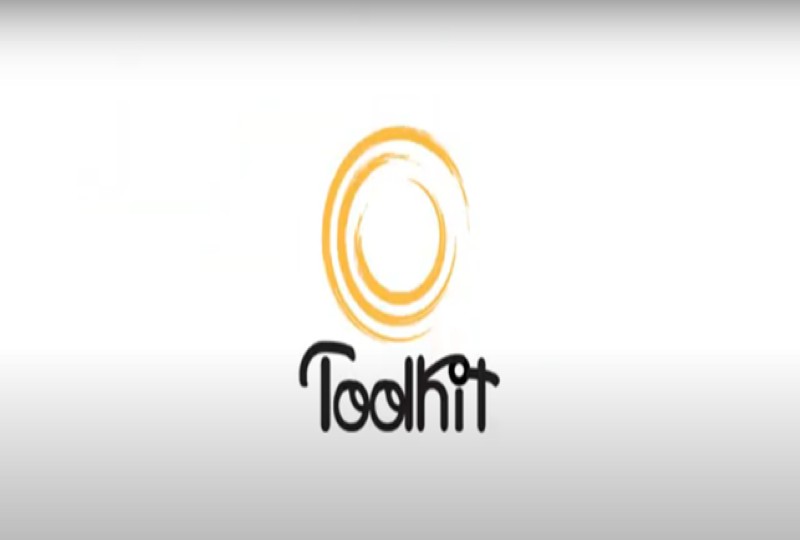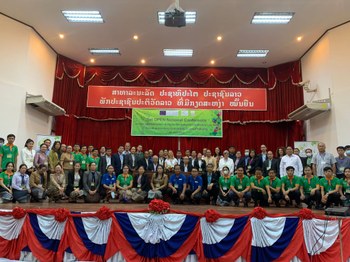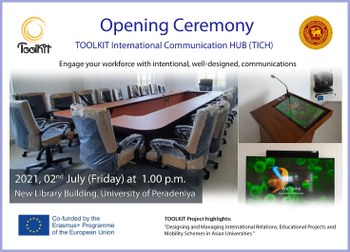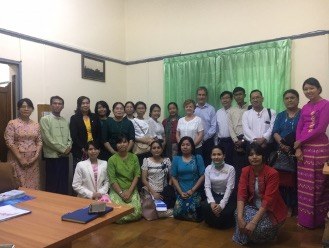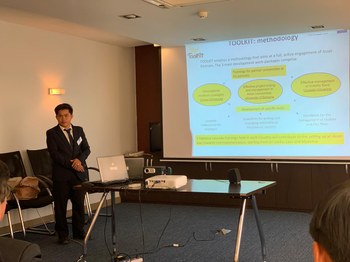7.1 Project’s website and social networks’ profiles
The purpose of this task was to design and realize the TOOLKIT’s project website, as well as the project’s social network profiles, in order to spread and promote all the activities performed in the framework of the project.
It is also meant to redesign and restructure the University websites of TOOLKIT’s local partners, enhancing their fruition especially in terms of transparent and easily accessible information on academic management and international relations.
The website and the social media accounts acted throughout the project cycle as the principal channel for keeping target groups informed about all relevant project matters.
The website map was developed and validated for the whole period of the project by the project team, by UNIBO. Social networks feeds, moreover, played an important role in terms of dissemination, given their current importance and diffusion among local students as precious tools to share the information and materials often missing from Universities’ websites.
The revised structure of the University websites was designed and finalized by the project team, with a particular emphasis in the development of an English version.
Consortium worked on the revision and implementation of IR webpages.
7.2 New Promotional Materials for Asian Universities to attract new international partners
In order to design and provide timely and efficient promotional material for TOOLKIT’s partners, brochures and promotional materials realized by each partner University have been presented, evaluated and tested by the WP leaders. After this validation, the brochures were distributed internationally with the help of EU partners.
In order to attract international partners and stakeholders, promotional videos have also be produced.
7.3 Visibility actions for Asian IRO
The activities performed by the IROs of Asian partner Universities should be clearly indicated in University’s institutional websites and promoted to the entire academic community.
Thanks to WP3 and WP4 activities, the IRO in each Asian partner Universities standardized its tools and practices in project design and management, as well as in mobility support. At this point, each IRO needed new promotional/dissemination materials to inform all the academic communities of the international relation opportunities in a more comprehensive and coherent way. First of all, each partner University gave clear space to IRO activities in their University institutional websites. These spaces were negotiated with the University governance. Secondly, leaflets and brochures were distributed to all the academic community during WP5 activities.
7.4 Handbook on TOOLKIT methodology and best practices
The main purpose of the activity was to develop and construct a Handbook on TOOLKIT methodology and best practices and share it with 500 Asian Universities.
The Handbook has been drafted with the support of all the partners, and then revised by the WP leaders.
Drawing for the experience acquired in these 2 years on online tools, the Consortium proposed to replace this final TOOLKIT Handbook with another instrument which will be more interactive, accessible and sustainable. As a final deliverable the Consortium implemented an HTML interactive map which illustrates both the trends and actions towards internationalization in Asian context and shows links to the tools developed by the projects.

